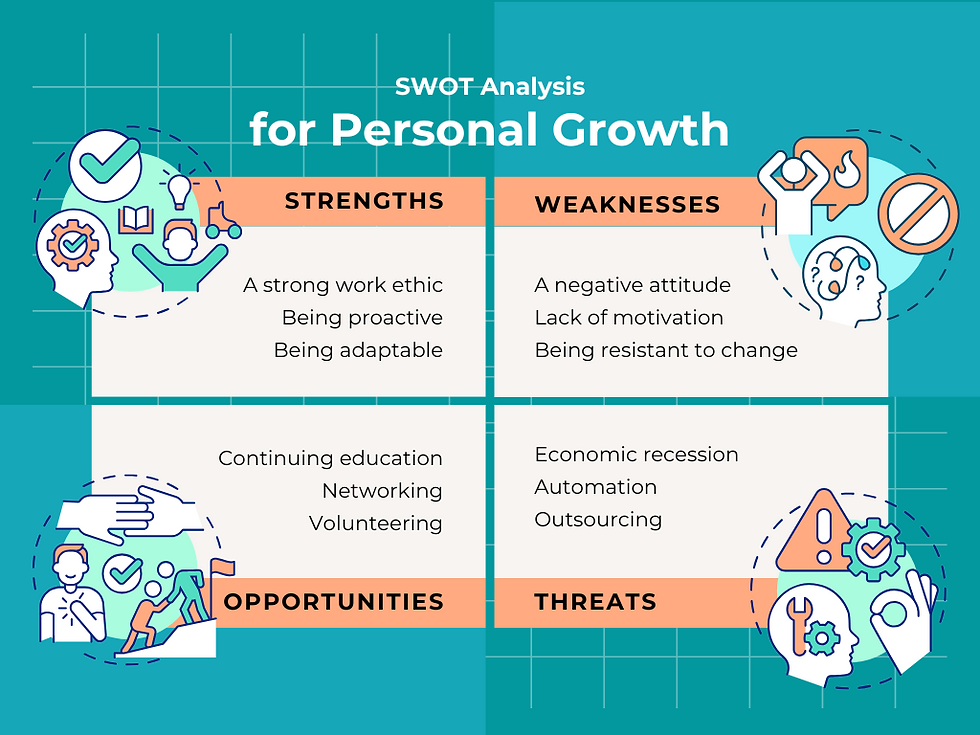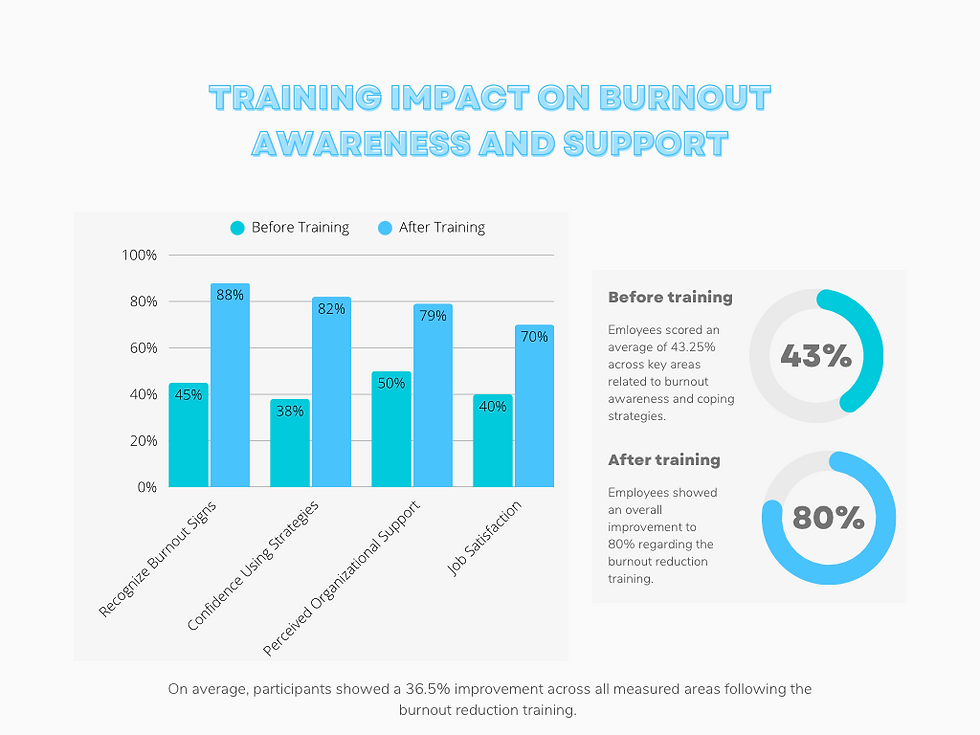Personal Change and Reflection
- Brianne Matthews
- May 15
- 6 min read
Updated: May 16
The first major contributor to the theory of grief was Sigmund Freud; his theory highlighted that all individuals who grieve search for a form of attachment following loss (Clewell, 2004). His work broke down grief into three specific categories: emancipating the ties of the deceased, readjustment to life after a loss and building fundamental relationships following that loss (Clewell, 2004). Although Bowlby Parkes criticized Freud’s theory of grief, he noted that it was crucial in the adaptation process also referred to as the psychosocial transition. Parkes’ theory of psychosocial transition suggests that life-altering events cause individuals to create major changes in their life (Parkes, 1971). Another grief theorist highly influenced by Freud is Kübler-Ross. The Kübler-Ross theory perpetuates the grieving process through a five-staged model including, denial, anger, bargaining, depression, and acceptance (Hodges, 2021). Throughout our lives, there will be various changes we must overcome such as, changing jobs, cities, breakups, and death. The purpose of this presentation is to highlight my experience through a personal change that has influenced my life. In my presentation, I’ll do so by focusing on three major points. Firstly, I will highlight the emotions that played a role in dealing with the change. Additionally, stipulating the type of change that occurred and lastly, demonstrating whether there was a resistance to change.
A recent change that I have experienced is the loss of my grandfather. Growing up, he was a big part of my life so this new reality of not having him around has been beyond difficult. The loss of someone in general is arduous, but when it is someone that you grew up with – the changes are even more tough to comprehend. Managing the emotions and feelings after a traumatic event is important because it allows us to be strong-minded, to adapt and to keep moving forward. Not only has this event affected me, but it also allowed me to see the change it has had on my family.
Reflecting on the course material, I recognize that we are currently experiencing various changes related to the change curve. My family and I have yet to accept that he is gone forever; just the other day we were spending time with him playing Chinese checkers – a game that we played throughout childhood. Throughout the week, we have been planning his funeral service and it is only hitting me now that he is gone. We have been collecting photographs of his life to create a montage for the funeral service – I personally found it very challenging to look at his photos without breaking down. As previously stated, the loss of my grandfather has affected everyone in various stages. As for myself, my immediate response to the news reflects the Kübler-Ross stage of denial. When my mom came into my room crying, I knew that he was gone. All the memories we shared together flashed in my mind as I started to lose control and breakdown. Despite these emotions, I believe that I surpassed the doubt phase because I knew that the day would come. Hodges defines emotions as intense reactions that are caused by specific events (Hodges, 2021, p.58). All individuals have different emotions to express how they feel in certain situations. For other members in my family, specifically Adam (anonymity to protect identity) who is a doctor – he has been stuck in the denial phase of blaming himself. He has expressed that he feels that he could have tried other medication or tried something else to help. But we all knew that it was an event that would happen, despite not wanting to experience it. Although this event is fresh, I strongly believe that mourning the loss of my grandfather will take a tremendous amount of time to adjust. My grandfather left behind his wife, children, grandchildren, and his great grandchild. My grandma, his wife, suffers from Alzheimer’s Disease, a form of dementia. Due to this, prior to his passing, she forgot who her husband was. I think that due to the changes of their home, she is coming to the realization that her husband is no longer with us. From my view, it seems that she is in the depressive stage. Although the event occurs at the same time for everyone, all individuals experience the effects of change at varying moments.
As we have deduced, change is inevitable. Despite change being unavoidable, there may be hardships that come about when experiencing something so drastic. For me, the loss of my grandfather was an unexpected and negative change. I believe I will eventually be at a place where I can accept his loss, but right now, it is too soon. I would not stipulate that there are any benefits to his loss. However, there are various drawbacks to this change because my grandfather will now miss out on all my future milestones in life such as, getting married, and meeting his great grandchildren. However, relating back to the course material, this situation is where adaptability may play a role. Jones stipulates that not all individuals have the capability to adapt to change suggesting that there may be innate characteristics related to the notion of adaptability (Jones, 2017). The ability for us to embrace this change leads us to believe that despite dealing with the idea that he is gone, there is always a way to keep moving forward. The video, “How adaptability will help you deal with change,” highlights that individuals’ are meant to adapt (Jones, 2017). There are many uncontrollable factors in our environment and an individual’s ability to adapt posits the willingness to learn, and to try new things (Expert Program Management, 2017). Despite these many uncontrollable factors, adapting to the change demonstrates the need to move forward positively. The textbook, “Managing and leading people through organizational change,” by Hodges characterizes unplanned change as an event that is not foreseen prior to the change (Hodges, 2021). Losing my grandfather was an unplanned change despite knowing the change would eventually occur. For context, my grandfather was diagnosed with stage 4 pancreatic cancer, 8 months prior to his passing. Unfortunately, there is no cure for pancreatic cancer if not caught early.
Personal changes in relation to family is often difficult to embrace, and I believe that this goes for everyone. However, when it comes to organizational changes, I have little to no issues dealing with changes – if anything, I tend to adapt better. When you care about someone, you never feel like they’re gone and that feeling of the person never goes away. I believe that I embraced this change by reminding myself that all good things eventually come to an end. I got to spend 23 years with my grandfather and although I would have loved to have more years with him, it was the best 23 years of my life, and I will deeply remember and cherish the memories that were built. Personally, over the years I have discovered that expressing my emotions is a difficult task but, I believe that because I have such a strong passion for music. Song writing has become my therapy and it has become my outlet in means of me needing to express myself. I also have such an amazing support group between my friends, family, and my co-workers. Thus far, I don’t believe any of my family members and I have resisted the change. We grasp that death emerges at one point or another – i.e., the circle of life. Looking back on this experience, although it has only been a week, I hope to learn to anticipate changes within families to better prepare myself for the future. Kotter and Schlesinger state that individuals resist change when they have a low tolerance to change, display self-interest or are misunderstood (Kotter, Schlesinger, 1979). I do not believe that any of these components factored in when dealing with this change. There is no right or wrong when dealing with adaptations to change; we all deal with obstacles with change in one form or another.
References:
Clewell T. (2004). Mourning beyond melancholia: Freud's psychoanalysis of loss. Journal of the American Psychoanalytic Association, 52(1), 43–67. https://doi.org/10.1177/00030651040520010601
Expert Program Management. (2017, January 20). The change curve [Video]. YouTube. https://www.youtube.com/watch?v=YOul0fb3g0Q
Hall, Christopher. (2014). Bereavement theory: recent developments in our understanding of grief and bereavement. Bereavement Care. 33. 7-12. 10.1080/02682621.2014.902610.
Hodges, J. (2021). Managing and leading people through organizational change (2nd Edition). Kogan Page.
Jones, J. (2017, October). How adaptability will help you deal with change [Video]. TED Conferences. https://www.ted.com/talks/jennifer_jones_how_adaptability_will_help_you_deal_with_change
Kotter, J., & Schlesinger, L. (2013). Choosing Strategies for Change. Projects.iq.harvard.edu. https://projects.iq.harvard.edu/files/sdpfellowship/files/day3_2_choosing_strategies_for_change.pdf.
Parkes, Colin. (1971). Psychosocial transitions: A field for study. Social Science & Medicine (1967). 5. 101-115. 10.1016/0037-7856(71)90091-6.





Comments